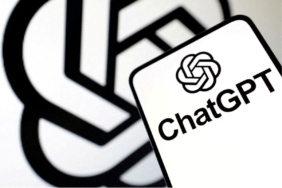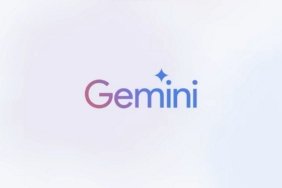OpenAI’s chairman, Bret Taylor, has announced the company’s decision to halt its plans to transition from a nonprofit organization to a for-profit entity. This reversal follows discussions with civic leaders and ongoing communication with the Attorneys General of Delaware and California, whose offices have jurisdiction over OpenAI’s nonprofit status. Both attorneys general previously expressed concerns regarding the restructuring, which faced criticism from figures like Elon Musk and representatives from Meta.
OpenAI’s nonprofit board, which briefly dismissed CEO Sam Altman previously, will continue to oversee its commercial subsidiary, which is transitioning from a capped for-profit model to a public benefit corporation (PBC), similar to organizations like Anthropic and xAI. In its former structure, investor returns were limited to a maximum of 100 times their investment before profits could be allocated back to the nonprofit.
Under the new PBC framework, OpenAI representatives have indicated that investors and employees will now possess standard stock without restrictions on growth potential. This development aims to attract additional funding, which had previously been contingent upon lifting the previously imposed limit on investor returns during OpenAI’s last two fundraising initiatives.
The proposed plan includes the controlling nonprofit acquiring an as-yet-undetermined equity stake in the PBC subsidiary, which will increase in value over time. According to Steve Sharpe, a spokesperson for OpenAI, the nonprofit board will appoint the PBC board while retaining ultimate governance of the organization. Notably, there are no current plans for CEO Sam Altman to acquire equity in the company, despite his significant leadership role.
In an unsigned statement, the press office for the California Attorney General’s office confirmed that “the California Department of Justice is reviewing the newly proposed plan. This matters remain ongoing, and we continue to engage in conversations with OpenAI.” There has been no comment from the Delaware Attorney General’s office concerning the matter.
In a communication to OpenAI employees, Altman expressed that the previous capped structure was appropriate in a context where a single leading AGI initiative was plausible, but is unnecessary amid a landscape featuring multiple strong AGI contenders. He stated that OpenAI would require “hundreds of billions, and potentially trillions of dollars” to ensure its services are available worldwide.
Altman’s complete memo is shared below:
OpenAI is not a conventional company and will never be.
Our mission is to ensure that artificial general intelligence (AGI) benefits humanity as a whole.
When OpenAI was established, we lacked a clear strategy for fulfilling our mission. Our initial discussions revolved around research possibilities, without any concept of business models or products. We could not envision the substantial benefits of AI in fields including healthcare, education, and beyond, nor the extensive capital needed to train models and serve users.
Back then, many believed that AI should be monopolized by a select few who could manage its risks.
Now, we see an opportunity for AGI to empower everyone, presenting unprecedented tools for humanity. We believe that this can lead to remarkable achievements, even though not all applications will be positive. However, we have confidence that the benefits will greatly outweigh the drawbacks.
We are dedicated to a path of democratic AI, enabling remarkable tools for everyone. We are encouraged by the creativity of our users and their eagerness to utilize our technologies. Our aim is to open-source impactful models and provide users with considerable autonomy in how they utilize our tools while upholding ethical guidelines.
We believe this is the best trajectory forward—AGI should benefit humanity comprehensively. While some may disagree, we are committed to this vision.
Our objective is to construct a brain for the world that facilitates easy access for all, with minimal restrictions to ensure individual freedoms are respected.
People are employing ChatGPT to enhance productivity as scientists, coders, and more. It is being utilized to tackle serious healthcare issues and for learning in ways previously unimaginable. We take pride in offering a service that provides significant value to many; it embodies our mission’s essence.
However, demand far outstrips our current supply; we must impose usage restrictions and operate our systems with caution. As our capabilities increase, so too will the interest in utilizing these technologies for even more innovative endeavors.
We had not anticipated this situation when we initiated our research lab nearly a decade ago, but we are excited about the present landscape.
It is crucial for us to adapt our organizational structure now. We aim to achieve three key objectives:
The decision has been made to maintain nonprofit control, following interactions with civic leaders and dialogue with the Attorneys General of California and Delaware. We anticipate progressing on this plan with continued discussions among stakeholders including Microsoft and our newly appointed nonprofit commissioners.
OpenAI was founded as a nonprofit and will continue to function in that capacity while overseeing its for-profit arm.
The for-profit LLC will transition to a Public Benefit Corporation (PBC) while maintaining its mission. PBC structures have become standard for other AGI labs like Anthropic and X.ai, as well as socially minded companies such as Patagonia. We believe this alignment is appropriate for us too.
The forthcoming structure will simplify our current capped-profit model and allow for a standard capital framework where all stakeholders own stock. This is not a sale, rather a reorganization for improved clarity.
The nonprofit will continue to govern the PBC and will receive a substantial equity stake determined by independent financial advisors, ensuring resources for programs aimed at widespread benefits of AI. As the PBC expands, the nonprofit’s resources will also increase, enhancing its capacity to further its mission. We eagerly await insights from our nonprofit commission on how to ensure AI serves a broad audience beyond a select few.
We believe this foundation will facilitate safe and rapid advancement, allowing us to place powerful AI tools in everyone’s hands. Crafting AGI is integral to our vision of societal progress, and we are excited to see what contributions others will make along the way.
Sam Altman
May 2025
Update, May 5th: Added comment from the California AG’s office.






